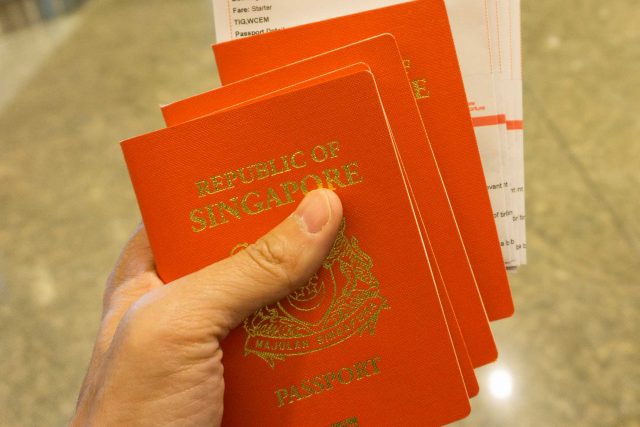An article in the Straits Times earlier this week explained the reasons behind why Singapore changed its passport numbering system. It came across to me like self-praise, that of how the immigration and other law enforcement agencies were not only smart, but also able to adopt to changing environments, even though the article was written by a former Interpol Secretary General.
The story caught on with many Singaporeans, leaving most with a sentiment of pride that our authorities could set aside legacy processes and implement change to meet new needs.
The background of the matter is about how Interpol was building a database of passport numbers that had been lost or stolen. To prevent such lost or stolen passports from being used by criminals, immigration authorities of any country could check all passports presented at their borders against this database.
The challenge for Singapore was that our passport numbers were previously linked to our national ID document. The passport number did not change when you renew your passport. If you report your passport lost or stolen, you would be reissued a new passport with that same passport number. This system of numbering meant that Singaporeans may be falsely detained or arrested if their own passports were ever stolen or lost, because their new and valid passport would still have the same ID number.
Now, our passport numbers are delinked from our national ID. In fact, every time you renew your passport, even if it was not lost or stolen, you will get a new passport number.
The solution, it seems, was to simply keep changing your passport number.
I have a smarter solution. At least I think so. Dear Interpol, why did you not include more details in your database of lost/stolen passports, such as this one simple extra details, the passport expiry date?
With this one simple tweak to the database, you would be able to easily distinguish a passport from another previous one that shared the same passport number, as long as they have different expiry dates?
It’s not like immigration officials don’t currently have to check the expiry date. They do need to check that your passport, even though not reported stolen or lost, is in fact still valid for use. This isn’t some obscure detail that would cause immigration checks to breakdown.
Now I wonder that if passport numbers are ever-changing, the current 7-digit long number will soon overflow. What will they do then, recycle from the start again, or change the letter prefix, or perhaps extend with another digit? I hope numbers won’t be recycled, since it would defeat the purpose that the number will not get accidentally flagged in Interpol’s database. Perhaps recycling isn’t an issue since passports are only valid for 5 years anyway, so it’s unlikely that a previously flagged number will continue to be not-expired before the number is re-used. Oh wait, but that depends on checking the expiry date. If you’re checking expiry date, then you might as well have that data in Interpol’s database, yah?
I hope there are other more compelling reasons which are not evident to the public, reasons as to why Interpol could not use passport expiry dates. I don’t disagree that the delinking of passport numbers from our national ID is bad (i.e., I agree it is good, in case you’re confused by my double-negative), but not so much that your own passport number needs to be changed each time that you renew it.
I don’t know, but is there an obscurity benefit that, when you enter a foreign country once, that they cannot connect back that you’re the same person entering again 5 years later, because your passport number has changed? I’m sure that other country would love to know that information, and perhaps they might already have some way of figuring it out, if not at least by the fact that many countries are capturing fingerprint data anyway so that they can match it.
So, then, I’d love to know. Why does Interpol not use passport expiry date as an extra detail to differentiate between multiple instances of the same passport number?

View Comment Policy